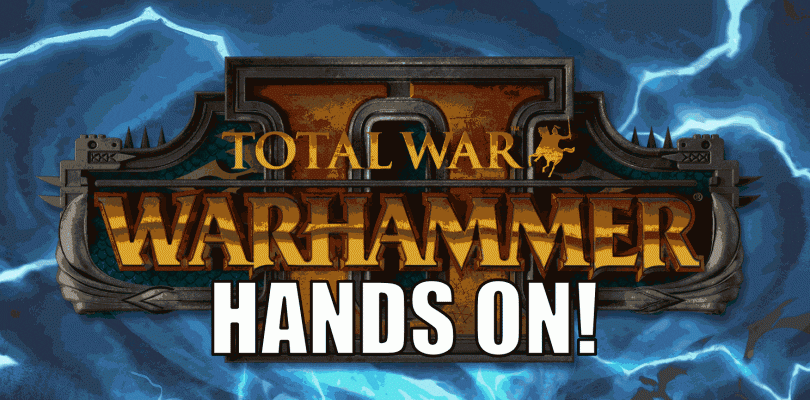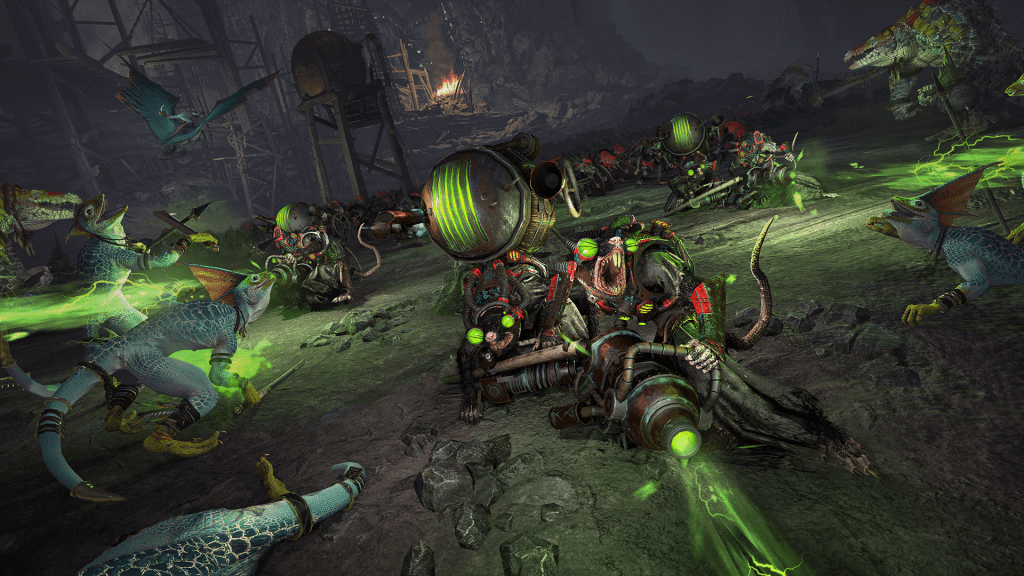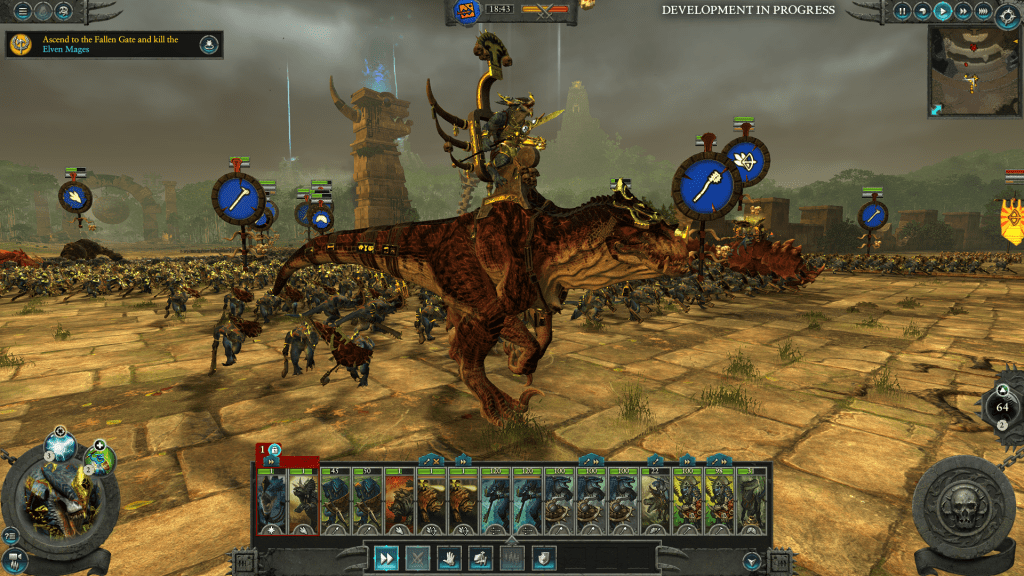The Total War series has always been a series that has been on my radar, appealing to my interest in games like Civilization, Age of Empires, and Warcraft. Though still very much about war, it seemed like they were on a smaller scale in terms of the world, but a bigger scale when it came to the battles. This approach seemed to allow for being able to dig deeper into the conflict, resulting in a much more immersive, commanding general role and requiring more nuanced tactics to win. My interest was further peaked when I saw the first Total War: Warhammer title announced, yet I never took the bait. After playing Total War: Warhammer II though, I’m bummed that it took me this long to play a Total War game.
There’s a constant hum of busyness and excitement at events like PAX that is ingrained into the experience. One of the first things I noticed, before I even put headphones on, was that hum was practically gone. Sega really wanted players to have as few distractions as possible to focus on commanding their armies. Total War: Warhammer II presented me with two scenarios I could play. The first was more introductory and the other a challenge. After a quick lesson in the controls from the rep I was with, I wisely chose the introductory scenario.
The battle was pretty straightforward. Two armies faced one another on a battlefield and started moving towards each other. Individual units moved together when selected and commanded as a group, falling into formation. I sent my front line and a flank first waiting to send more to react to the enemy. It didn’t take me too long to get into the flow of the battle, sending units to take care of various conflicts around the battlefield. Accompanying my army were a few unique units with special abilities that could be activated and aimed, all useful and when used correctly could change the tide of a battle.
I will admit, more than once I completely missed the regiment I wanted to hit, dealing a bunch of damage to some trees and grass behind them. It was a lot to take in and to manage. I realized I had spread myself too thin when enemy reinforcements came barreling out of a nearby forest and had to recollect. I was thankful I had one of my unique units nearby to offer a support of spells to cast, while the rest of my army came to deal with the new threat. After a few corrections I had control of the battlefield and enemy units were running and I had the victory screen in no time.
I clearly had a boost of confidence after that, as I went into the more challenging scenario feeling ready, battle hardened. Though things started alright, something happened. I’m not even sure what, but all of a sudden I was losing and I never recovered. Defeat loomed on my screen. Immediately I was thinking about things I could have done differently, wishing my soldiers had moved just a bit quicker or hit just a bit harder and I could have won!
I didn’t get the opportunity to try my new ideas; my time was up.
Total War: Warhammer II is usually played from a distance, observing the battlefield from above to better command the armies below. From that point of view, the game looks amazing. Units all moving together are still identifiable. Environments are genuinely beautiful, with natural colors and textures. Care was taken to make it all look very organic. The game is well lit, allowing for everything to be seen clearly. This I expected though, what I didn’t expect was how much detail was retained when zooming in, way in. Units retained their character, had texture, and looked to all be apart of the same world. It was really astounding. I expected it to look significantly worse when I zoomed in and sat a bit in awe in what was accomplished. That many units, in that large of an environment, looking that good, moving independently, in real time. I’m not sure if all the Total War games are like this, but with this being my first experience I was deeply impressed.
I can easily see Total War: Warhammer II being a game where I could lose my sense of time and all of a sudden find myself awake at four in the morning, similar to my history with Civilization games. The bigger scale battles combined with a more interactive and smaller conflict really appeals to me. I’d like to see the ability to execute more complex orders. I’d be interested in being able to add curves to my army’s movements vs straight lines. (If these are things that are already able to be done, I apologize as I did not experience these in my time with the game). I was impressed with how far I was able to zoom into the battlefield and the level of detail that was retained. It really made me feel like a commanding general.
I was assured before I even started that Total War: Warhammer II is independent of the first one completely and it isn’t necessary to have played to enjoy the second to the fullest. Each game focuses on different races and conflicts, taking place in a different areas of the Warhammer world. A third game is planned as well.
This being my only experience with a Total War game, how does the Warhammer Universe change the formula? For fans of the miniature game, how does Total War stack up? Are you excited at continuing the Warhammer trilogy? Let us know in the comments!
Find more information on Total War: Warhammer II on the official website.






